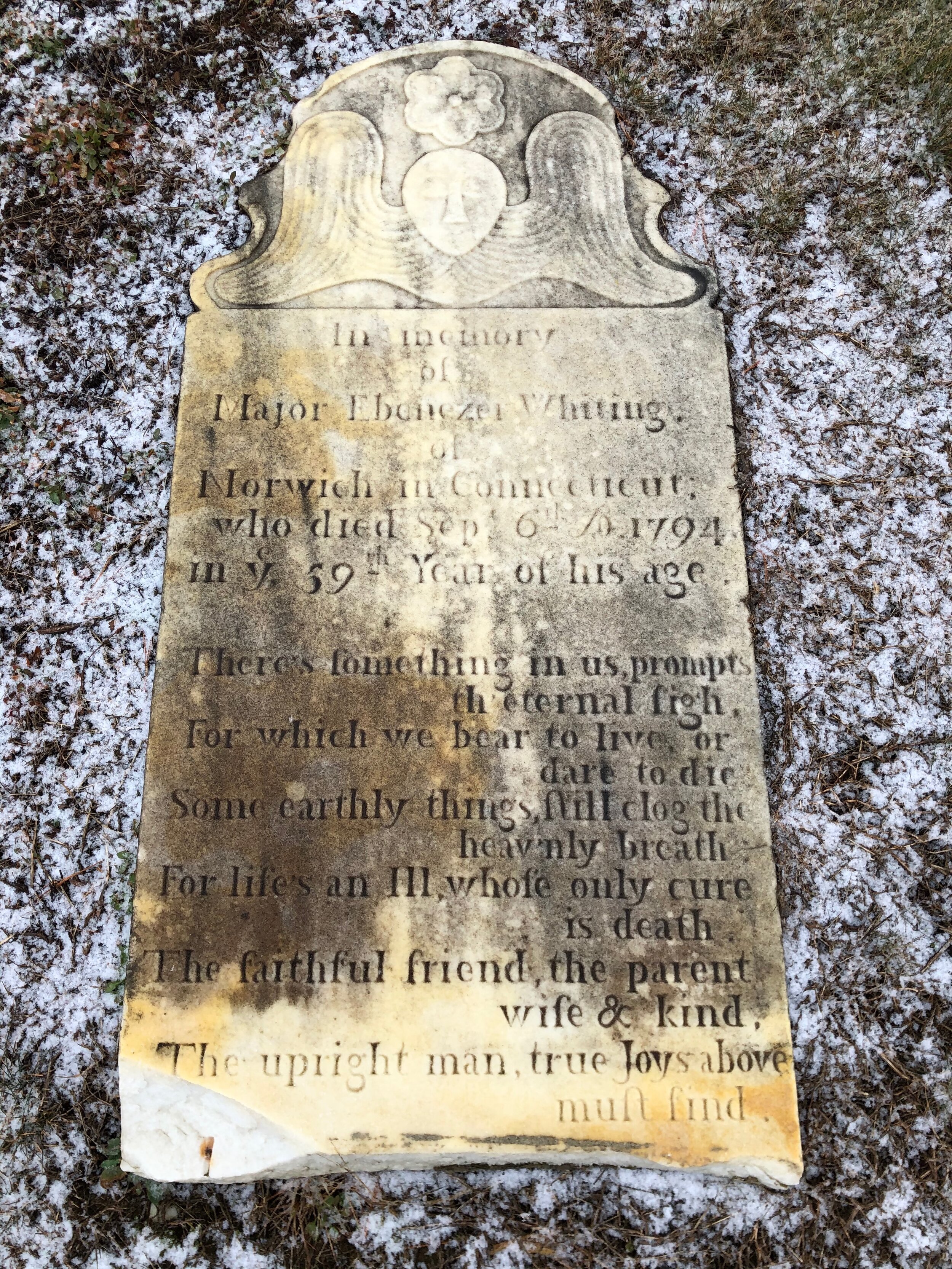In memory
of
Major Ebenezer Whiting
of
Norwich in Connecticut
who died Sepr 6th AD 1794
In ye 59th Year of his age
There’s something in us prompts
th’ eternal sigh,
For which we bear to live, or
dare to die
Some earthly things, still clog the
heav’nly breath,
For life’s an Ill, whose only cure
is death.
The faithful friend, the parent,
wise & kind,
The upright man, true Joys above
must find.
First two lines are from Pope’s Essay on Man, from the opening of Epistle IV. Here Pope addresses the need to focus on true, not false, Happiness:
Oh Happiness! our being’s end and aim!
Good, Pleasure, Ease, Content! whate’er thy name,
That something still which prompts th’eternal sigh,
For which we bear to live, or dare to die;
Which still so near us, yet beyond us lies,
O’erlook’d, seen double, by the fool and wise:
Plant of celestial seed! if dropt below,
Say in what mortal soil thou deign’st to grow?
The next two lines sound like Pope, but I cannot identify them. Perhaps it is a local writer trying to emulate Pope. They do not quite work though, do they? “Some earthly things still clog the heav’nly breath” reads as a comment about the condition of the deceased, whose transformation to eternal life in Paradise is somehow still incomplete, impeded by the last remnants of earthly existence.
The next lines reads as a response to a comment or answer to a question: “Because life’s an Ill.” But it doesn’t really link to the prior line, it simply states a fairly commonplace sentiment. My conviction this is a local writer building on the Pope lines grows with the last couplet, which seems to be an entirely bespoke eulogy listing Major Whiting’s cardinal virtues as a friend, parent, and member of the community. I note with interest there is no reference to his being a good husband. Perhaps he had been widowed for some time.
Be that as it may, in the end the epitaph works well as a completed composition, beginning with an allusion to the true happiness that comes from faith in religion, and coming full circle to end with the assurance that the virtuous Ebenezer will find his true, and well-earned, joys above.
